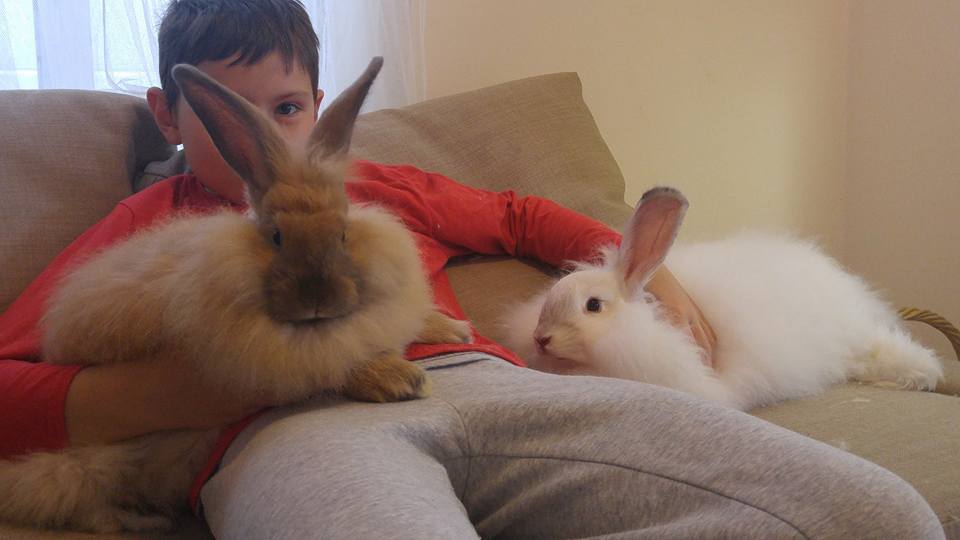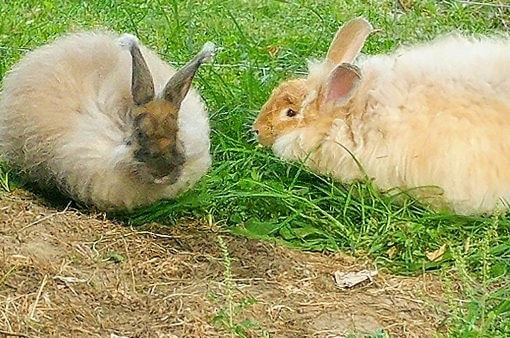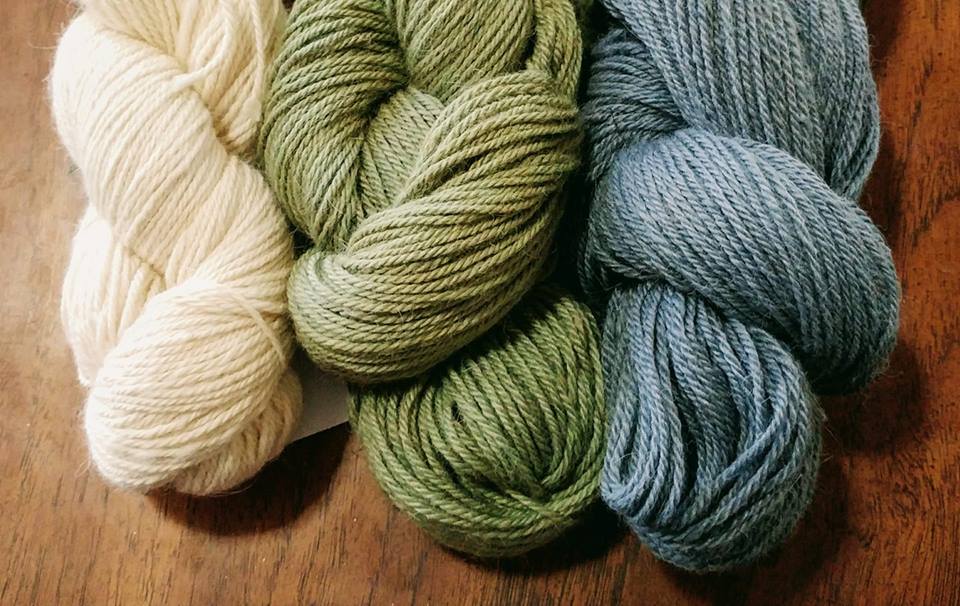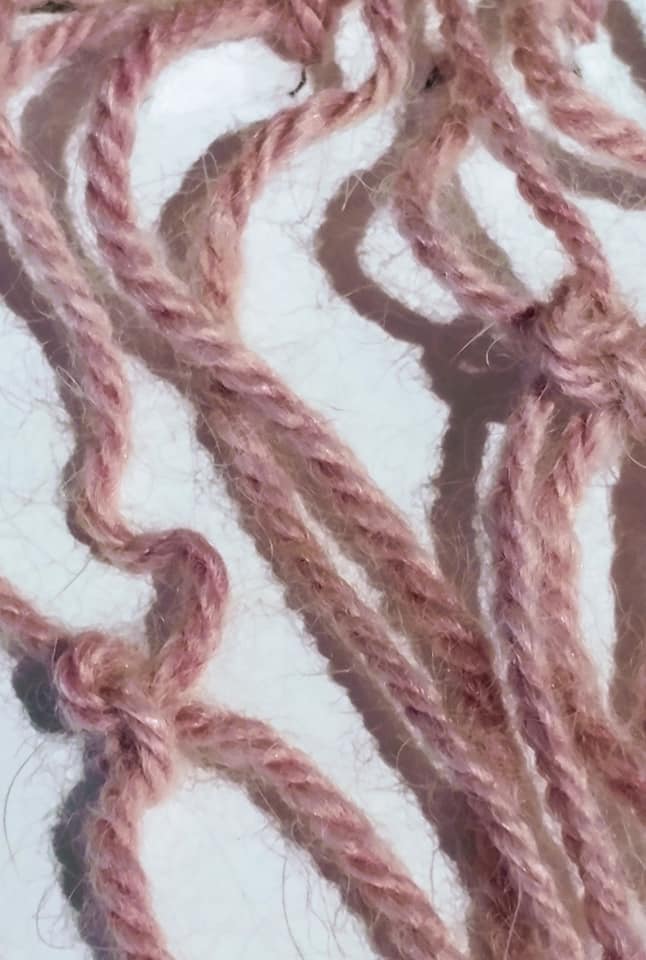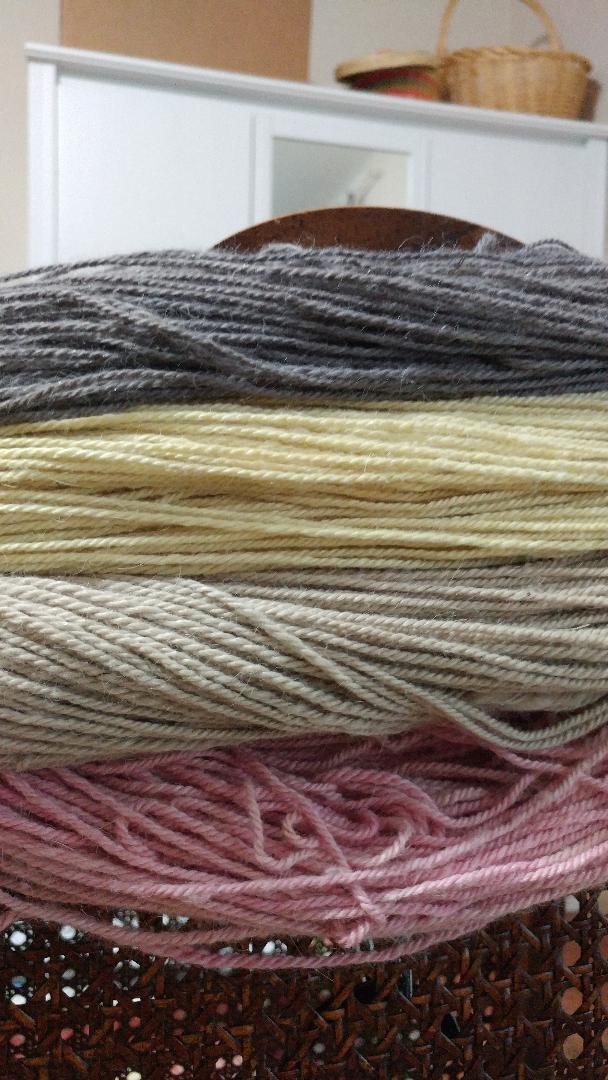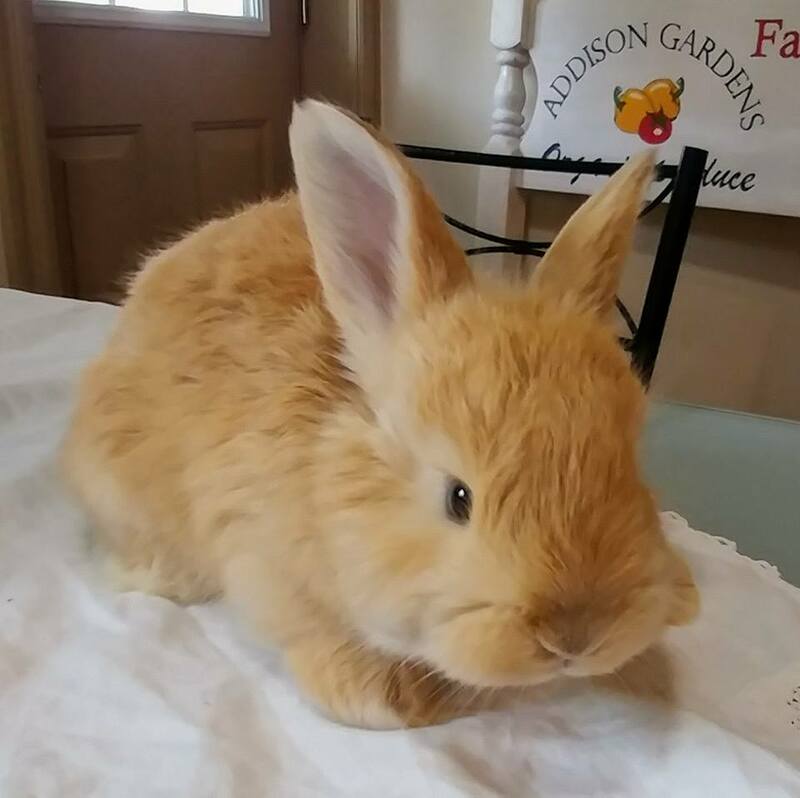We are the proud owners of four French angora rabbits. We collect their fiber only when they molt (shed their coat all at once). If you want to learn more about our collection process, scroll down on the page.
The first batch of fiber was turned into yarn by a fiber mill in New Brunswick, blending with their own alpaca and merino wool. The result is an incredibly warm and soft, versatile yarn that has just enough angora halo without a tendency to pile.
This first batch of yarn was named Fleur in honor of our amazing mama bunny.
In the spring, we have amazing wooler and the occasional show quality bunnies for sale.
Scroll down to meet the fur squad and see what we currently have for sale.
The first batch of fiber was turned into yarn by a fiber mill in New Brunswick, blending with their own alpaca and merino wool. The result is an incredibly warm and soft, versatile yarn that has just enough angora halo without a tendency to pile.
This first batch of yarn was named Fleur in honor of our amazing mama bunny.
In the spring, we have amazing wooler and the occasional show quality bunnies for sale.
Scroll down to meet the fur squad and see what we currently have for sale.
Meet the team
We purchased our first two bunnies in 2017 when we still lived in Toronto. The nearly white Fleur and the Chocolate Tortoiseshell Lui became family members in an instant.
Lui and Fleur gave us a delightful litter or bunnies in the spring, from which we kept the golden boy, the fawn colored Pinko.
Our newest recruit is the black Torti, Bonbon. She had a bit of a rough start with multiple owners and a pregnancy before she was a year old. She is settling in nicely and seems to enjoy Pinko's attention.
Lui and Fleur gave us a delightful litter or bunnies in the spring, from which we kept the golden boy, the fawn colored Pinko.
Our newest recruit is the black Torti, Bonbon. She had a bit of a rough start with multiple owners and a pregnancy before she was a year old. She is settling in nicely and seems to enjoy Pinko's attention.
The fiber collection process
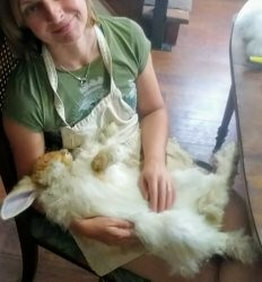 Pinko fell asleep during his first grooming session. Feeling their trust is priceless.
Pinko fell asleep during his first grooming session. Feeling their trust is priceless.
Angora fiber received a bad reputation after PETA released some very disturbing videos on the fiber collection process in Chinese large-scale angora operations. I feel compelled to explain that, while I do not doubt the existence of animal cruelty in industrial angora production, our practice is entirely different.
French angora rabbits shed their coat; molt 3-5 times a year. When they go into molt their coat becomes more shabby looking and starts to mat if we don't act quickly. The released fiber makes it's way into the bunnies stomach when they are grooming themselves, causing intestinal wool block that may be lethal. collecting the fiber therefore is a must to keep the rabbits healthy.
When the time comes to collect fiber, I place the bunny on a table in front of me or hold them in my lap, depending what the bunny prefers. They are allowed to move around, sniff around, munch on carrots or fell asleep, if that's what they feel like doing. I admit, the process takes longer this way but it becomes a bonding opportunity which we all benefit from on the long run. I use a metal comb, brush or my fingers to collect the loose strands of fiber. If the wool is tangled (armpits and the area behind the ear are very prone to this), I use a small safety scissor to cut away the felted wool. I do not like shearing the rabbits as it leaves the ends of the loose fibers in their newly growing coat that may cause more matting and wool block.
At the end of the process the bunnies are left with only the short, usually much darker new coat on their bodies, looking almost like regular bunnies. Almost :-)
French angora rabbits shed their coat; molt 3-5 times a year. When they go into molt their coat becomes more shabby looking and starts to mat if we don't act quickly. The released fiber makes it's way into the bunnies stomach when they are grooming themselves, causing intestinal wool block that may be lethal. collecting the fiber therefore is a must to keep the rabbits healthy.
When the time comes to collect fiber, I place the bunny on a table in front of me or hold them in my lap, depending what the bunny prefers. They are allowed to move around, sniff around, munch on carrots or fell asleep, if that's what they feel like doing. I admit, the process takes longer this way but it becomes a bonding opportunity which we all benefit from on the long run. I use a metal comb, brush or my fingers to collect the loose strands of fiber. If the wool is tangled (armpits and the area behind the ear are very prone to this), I use a small safety scissor to cut away the felted wool. I do not like shearing the rabbits as it leaves the ends of the loose fibers in their newly growing coat that may cause more matting and wool block.
At the end of the process the bunnies are left with only the short, usually much darker new coat on their bodies, looking almost like regular bunnies. Almost :-)
Angora products
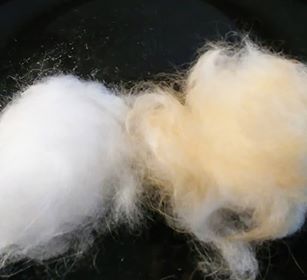 White and cream angora fiber
White and cream angora fiber
Angora fiber.
We always have a stock of angora fiber for sale. Due to the high proportion of "down" fiber in angoras, they produce white or creamy pastel shades.
Angora fiber is hollow which makes it very light and very warm. We recommend blending it with other fibers as pure angora yarn tends to be hot and prone to matting/piling. A yarn expert suggested to us to use a maximum of 10% angora in our yarns to achieve a versatile product that will stand the test of time.
Price: $12 for one ounce of prime quality angora fiber.
Message us to learn about free shipping/delivery options, bulk order discounts and the availability of baby angora fiber.
Angora blend yarn "Fleur"
The first batch of yarn was produced in the spring of 2018 by Legacy Lane fiber mill in New Brunswick. The blend is 15% angora, 40% alpaca from their own herd and 45% locally resourced superwash wool. It is all natural, all-Canadian, animal friendly product that turned out pretty amazing! Our skeins are worsted weight and 250 yards each.
We have natural yarn that has a warm off-white color, and an increasing number of color choices.
Please note that we produce the colors by hand-dying with natural dyes produced at our farm.
Prices: $ 38 for undyed skein, $ 40 for any color - see image gallery for current color options.
Custom dying is available, please message us for details.
We always have a stock of angora fiber for sale. Due to the high proportion of "down" fiber in angoras, they produce white or creamy pastel shades.
Angora fiber is hollow which makes it very light and very warm. We recommend blending it with other fibers as pure angora yarn tends to be hot and prone to matting/piling. A yarn expert suggested to us to use a maximum of 10% angora in our yarns to achieve a versatile product that will stand the test of time.
Price: $12 for one ounce of prime quality angora fiber.
Message us to learn about free shipping/delivery options, bulk order discounts and the availability of baby angora fiber.
Angora blend yarn "Fleur"
The first batch of yarn was produced in the spring of 2018 by Legacy Lane fiber mill in New Brunswick. The blend is 15% angora, 40% alpaca from their own herd and 45% locally resourced superwash wool. It is all natural, all-Canadian, animal friendly product that turned out pretty amazing! Our skeins are worsted weight and 250 yards each.
We have natural yarn that has a warm off-white color, and an increasing number of color choices.
Please note that we produce the colors by hand-dying with natural dyes produced at our farm.
Prices: $ 38 for undyed skein, $ 40 for any color - see image gallery for current color options.
Custom dying is available, please message us for details.
Pedigreed angora bunnies for sale
Lovely and healthy wooler or show bunnies will be available in the spring. Stay tuned!

